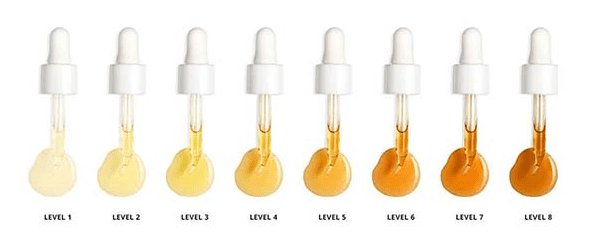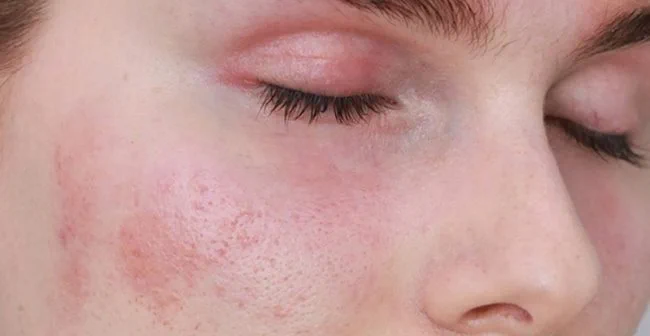When mentioning cosmetics containing vitamin C, most people often think of skin-whitening properties. However, the truth is that vitamin C has many other great uses, such as preventing melanin synthesis to brighten the skin, preventing pigmentation problems such as freckles, and protecting the skin from aging thanks to its strong anti-oxidation ability.
Most animals can synthesize vitamin C themselves, but humans have lost that ability. At the same time, vitamin C naturally dissolves in water, so it is not stored for long in our bodies. That’s why we need to regularly supplement it through food.
Some of you have asked me: Is it necessary to use cosmetics containing vitamin C when we can supplement it through food?
The answer is that vitamin C, after being absorbed by the stomach, is difficult to exist for a long time and be distributed to the skin. Therefore, applying it directly to the skin is the most effective way to take advantage of its benefits.
1. Classification of Vitamin C in Cosmetics
In cosmetics, Vitamin C is often divided into two types: “Pure Vitamin C” and “Derivative Vitamin C Ester”.
Regular Vitamin C: This is the most powerful form, the most common being ascorbic acid (L-ascorbic acid).
- Low pH means strong acidity, so it can cause irritation and burning for some skin types.
- Skin permeability is quite low and difficult to mix with other active ingredients.
- Fast and strong impact.
- Pure vitamin C easily oxidizes when exposed to the environment, making its preservation somewhat difficult. The product must be kept away from sunlight and stored in the refrigerator; otherwise, it will turn yellow or orange.

Vitamin C Ester: Some common ones include ascorbyl glucoside, ascorbyl palmitate, and ascorbyl phosphate.
- Causes little irritation.
- Stable physical and chemical properties, less affected by the environment, easy to preserve.
- Easily absorbed through the skin.
- Can be easily combined with other active ingredients in one product.
- The effects may be slower than those of pure vitamin C.
Vitamin C used in cosmetics is often extracted from citrus plants, mulberries, and cereals. In terms of raw material costs, vitamin C ester are often more expensive because the production process requires more steps.
2. How to choose Vitamin C suitable for your condition and needs
- Regular Vitamin C: highly effective but low in stability.
- Vitamin C Ester: Slow effect but high stability.
Each type has clear advantages and disadvantages, so which type to choose depends on two main factors. The first is the body’s ability to adapt, and the second is the needs of each person.

If you want to quickly see results, your skin is rarely irritated. You can choose cosmetics containing regular vitamin C. The most common products are serums because vitamin C in this form preserves its inherent properties.
If your skin is sensitive or this is the first time using vitamin C, choose products that contain vitamin C ester. For example, masks and creams.
So what if your skin is sensitive but you still want to use regular Vitamin C to shorten skin care time? The first thing to do is balance the pH of the skin. The simplest thing is to apply toner. The second step is to use just a little vitamin C or mix it with moisturizer and apply a thin layer to your face. After a period of adaptation, gradually increase the amount. However, mixing with other products may cause unexpected chemical changes; I do not recommend doing so.
3. Personal opinion

When considering the overall benefits, Personally, I would choose vitamin derivatives because of their safety, ease of storage, and ease of use. Up to now, I have remained loyal to the motto “slowly but surely,” so sustainable products are still the number one priority.
Another reason for using vitamin C derivatives is that vitamin C supplementation through food or cosmetics must be maintained regularly to bring about anti-oxidant and anti-aging effects for the body. can. Therefore, the safety of vitamin C derivatives is very consistent with the above goals.
Maybe those who worship organic products will be disappointed by the advantages of vitamin C derivatives compared to the original type. But we must be fair in noting these things. I am truly grateful to the scientists who bring convenience and safety to customers.
